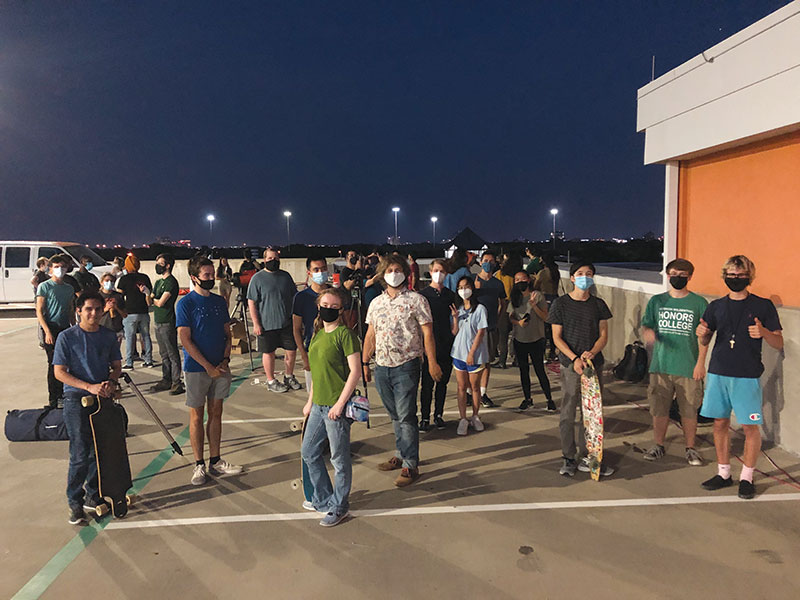Finding Community in the Stars
Fall
2022
Special Feature
Finding Community in the Stars
Brandon Sike, SPS Chapter President, University of Texas at Dallas, and Alex Obenza, SPS Chapter Treasurer, University of Texas at Dallas
 Astronomy and physics have always been closely aligned. In recognition of this, the University of Texas at Dallas (UTD) SPS chapter, in coordination with the Astronomy Club and Graduate Students in Physics (GSP), hosted an overnight observation of the near-total lunar eclipse on November 19, 2021. The event had an exceptional turnout, with more than 120 attendees.
Astronomy and physics have always been closely aligned. In recognition of this, the University of Texas at Dallas (UTD) SPS chapter, in coordination with the Astronomy Club and Graduate Students in Physics (GSP), hosted an overnight observation of the near-total lunar eclipse on November 19, 2021. The event had an exceptional turnout, with more than 120 attendees.
Astronomy events are the most popular events hosted by our SPS chapter. They typically consist of star parties, but we also organize them around rare astronomical events such as eclipses or planetary transits. Astronomy-themed events are great outreach because they increase interest in both physics and astronomy.
The Astronomy Club isn’t officially registered with the UTD student organization center. It’s composed of astronomy enthusiasts and prospective astronomers, and jointly coordinated by our local chapters of SPS and GSP. Although the idea of spinning off the Astronomy Club into an independent organization has been floated occasionally, the club has remained tied to these two organizations. One reason is that the fields of astronomy and physics are so closely linked, and another is that their membership is so closely linked. We both benefit from working together.
For the eclipse event, our SPS chapter and the Astronomy Club set up telescopes for the duration of the eclipse. Students, many non-physics majors, dropped by to look at the eclipse. We also had fun socializing, despite the cold weather. Our other astronomy-themed events have included many star parties, an SPS Zone 13 Virtual Astronomy Night, a partial solar eclipse livestream, and an attempt to view the November 2019 Mercury transit, which was canceled due to weather.
Star parties have been invaluable for connecting our community, and the fall semester just wouldn’t feel right without a star party kickoff. SPS, GSP, and the Astronomy Club set up telescopes on a parking structure, turn off the lights, and invite the campus to observe. We look at Jupiter’s moons, Saturn’s rings, and features on the moon’s surface. This is the first introduction many students have to telescopes, so members of the Astronomy Club give microlectures on telescope operation and construction. Our star parties are a great astronomy introduction for the entire school community and the perfect opportunity for students to meet faculty and each other.
Our collaborations with the Astronomy Club are invaluable to our physics community. In addition to being great educational experiences, our joint astronomy events present an ideal environment in which to socialize and build community. We plan to continue this partnership tradition in the future, and we highly recommend that other SPS chapters start their own astronomy traditions!
